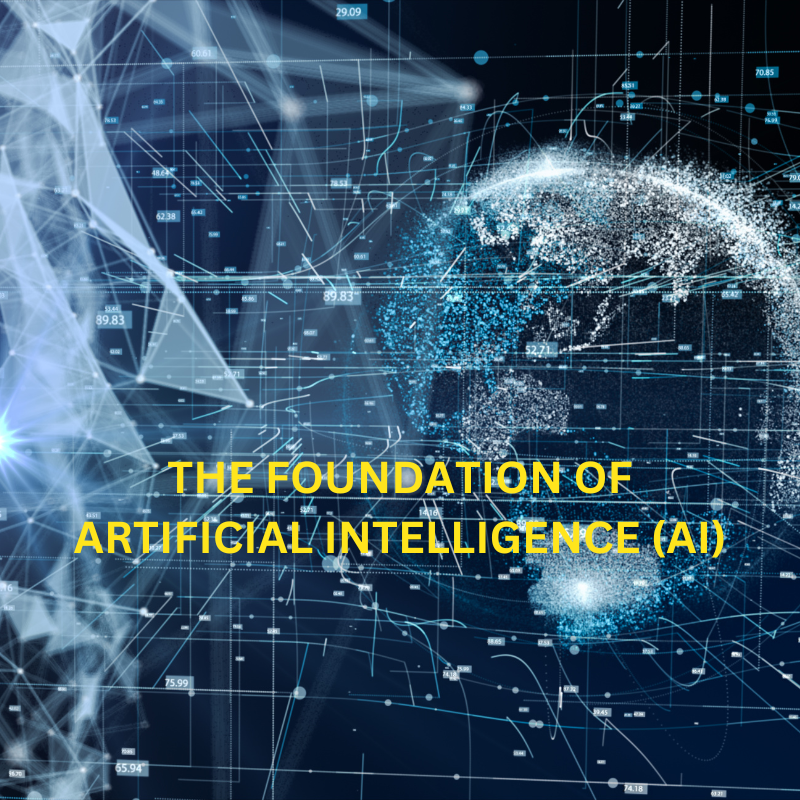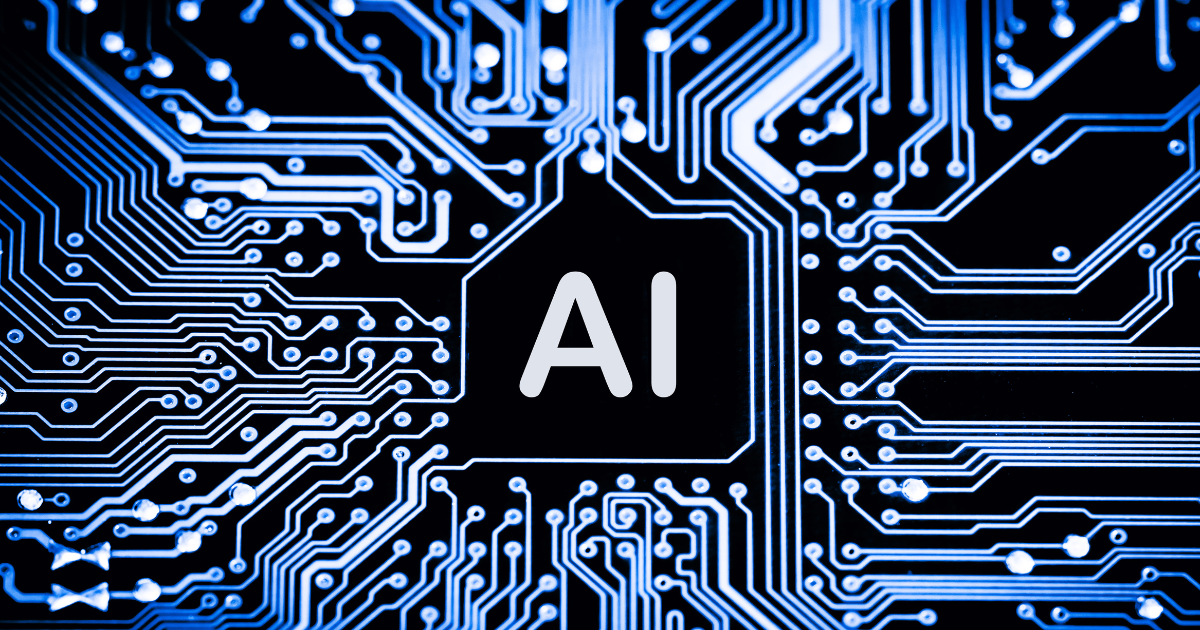The foundation of artificial intelligence (AI)
Artificial Intelligence (AI) is one of the most talked-about topics in business today. But what exactly is it? How can it be used to benefit your organization? This beginner’s guide will provide you with an overview of the fundamentals and foundation of Artificial Intelligence so that you can start making informed decisions about how this technology can improve your organization.
What is Artificial Intelligence? 
At its core, artificial intelligence (AI) is a branch of computer science that deals with the development of machines and algorithms that are capable of performing tasks traditionally performed by humans, such as recognizing patterns, making decisions, and solving problems.
These tasks are accomplished by utilizing a combination of data mining, natural language processing, and machine learning algorithms.
Benefits of AI for Businesses
In recent years, companies have begun to explore the potential benefits that artificial intelligence can bring to their organizations. AI has the potential to automate tedious and repetitive tasks, freeing up time for employees to focus on more valuable work. Additionally, AI applications can be employed in customer service contexts to help customers find answers quickly and accurately. Finally, using AI-powered technologies like chatbots can help businesses better understand customer behavior and preferences in order to deliver tailored experiences that lead to improved engagement and loyalty.
Potential Challenges When Implementing AI Technology
While there are numerous benefits associated with implementing AI technology within an organization, there are also challenges associated with taking advantage of these technologies. One challenge is developing the necessary technical skills within the organization needed to successfully implement these tools; another challenge involves obtaining the right data sets necessary for training models; finally, organizations must grapple with ethical considerations around privacy when deploying AI-powered solutions since these technologies often involve large data sets collected from customers or other stakeholders.
Foundations of AI
The foundation of artificial intelligence (AI) is based on the concept of an intelligent machine being able to think, learn and interact with its environment. The foundation of AI can be broken down into two main components: algorithms and data.
Algorithms are sets of instructions that allow a computer to process data and make decisions while data provides information for the algorithm to use. For AI to complete tasks, it must have access to specific datasets that contain relevant information and patterns. This allows the AI system to recognize patterns in its environment better, enabling it to make more accurate decisions or predictions.
Machine learning
The most powerful foundation of artificial intelligence is machine learning, machine learning is the science-based empowering machine to make decisions without human intervention. Once these components are established, they can be combined with other technologies such as natural language processing (NLP), computer vision, and robotics in order to develop more advanced AI systems. By using these technologies together, AI systems can gain a better understanding of the world and make decisions based on their data.
Mathematicians and Philosophers
The foundation of artificial intelligence can be traced back to ancient Greek philosophers and mathematicians, who attempted to explain rational thought and behavior through mathematics. The modern foundation of AI was developed in the 1950s by Alan Turing, who proposed an “imitation game” that could determine whether a machine could think for itself. This idea eventually evolved into the concept of a “Turing Test,” which is still used today as a measure of Artificial Intelligence.
Since then, AI has grown exponentially with advances in computer hardware, software, and algorithms, leading to more sophisticated machines capable of performing complex tasks such as image recognition and natural language processing. With its ability to quickly analyze large amounts of data and make decisions autonomously, AI has found its way into virtually every industry, from healthcare to finance.
Foundations of AI: At present
Today, the foundation of AI is built upon a range of disciplines, from mathematics and computer science to psychology and philosophy. As researchers continue to explore the potential of AI technology, we can expect even more advances in the future that will help us make better decisions and solve complex problems. With its ever-expanding capabilities, Artificial Intelligence has become an invaluable tool for businesses across various industries.
The artificial foundation was an American artificial intelligence company (AAI). Its offices are in las vegas and sanfrancisco. They started in 2017. The major advantage we see is that artificial intelligence reduces human error and we all know this is the biggest achievement. The major thing is that we all get 24/7 support from artificial intelligence through chatbots as customer care. All the tasks can be performed with full efficiency by artificial intelligence. There are two types of artificial intelligence :
1) Based on capabilities
2) Based on the functionality
Based on capabilities artificial intelligence is divided into three categories narrow artificial intelligence, stronger artificial intelligence, and general artificial intelligence. If we talk about Based on functionality it will be Reactive machines, limited memory, Theory of mind, and self-awareness.
The major applications of artificial intelligence:
- Robotics
- Healthcare
- Computer vision
- Social media
- E-commerce
As we all know everything has its challenge so artificial intelligence has its too. We all know how artificial intelligence impact us so what are the challenges then? The biggest challenge is we don’t have enough data to work with artificial intelligence systems and ai requires a lot of data to work with and provides the best result. In most countries, lack of data is the main issue.
The major part we are falling insufficient IT structure. There is still a lack of infrastructure mainly in new companies which becomes a challenge for them. But artificial intelligence has more benefits compared to challenges and stands as a solution other than a challenges
Conclusion:
Artificial intelligence (AI) has become an increasingly important technology in many business contexts due to its potential for automation and optimization. Understanding the basics of AI—including what it is, what potential benefits it offers businesses, and some potential challenges associated with implementation—is essential for any leader looking to make informed decisions about how best to utilize this technology within their organization. With this knowledge in hand, you’ll be well positioned to take advantage of all that AI has to offer!
In conclusion, the foundation of AI is built on algorithms, data, and other technologies in order to enable machines to think, learn, and interact with their environment. By combining these components together, more complex and powerful AI systems can be created. This foundation is necessary for continued growth in the field of artificial intelligence. The five basic components of artificial intelligence are learning, reasoning, problem-solving, perception, and language understanding. In basic terms, artificial intelligence is the ability of computer programs to think and learn.












